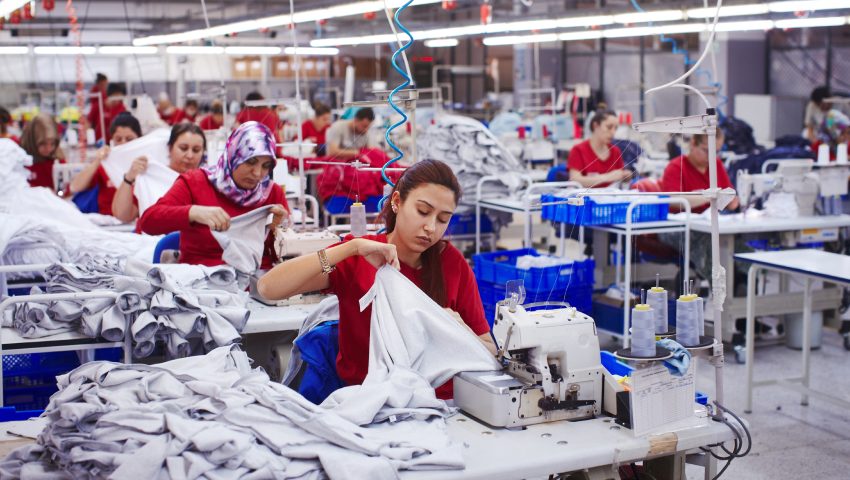The federal government has been urged to strengthen Australia’s modern slavery laws after a damning new investigative report was released on Monday (7 February).

A coalition of human rights organisations, church groups and academics are calling on the federal government to strengthen Australia’s modern slavery laws after releasing a major new investigative report that found that many companies are failing to identify obvious risks of forced labour in their supply chains or take action to address them.
It examined statements submitted to the government’s Modern Slavery Register by 102 companies sourcing from four sectors with known risks of modern slavery: garments from China, rubber gloves from Malaysia, seafood from Thailand and fresh produce from Australia.
The report revealed that 77 per cent of companies reviewed had failed to comply with basic reporting requirements mandated by the Modern Slavery Act, and 52 per cent had failed to identify obvious modern slavery risks in their operations or supply chains. Moreover, only 27 per cent of companies were shown to be taking effective action to address modern slavery risks.
Report co-author and HRLC senior lawyer Freya Dinshaw said that the coalition have called for a range of measures to strengthen the act. These include the addition of penalties for companies that fail to comply with the law, mandatory due diligence requirements, improved access to justice for workers and better guidance for companies sourcing from high-risk sectors.
“The Modern Slavery Act was meant to drive a ‘race to the top’ by business to address modern slavery in global supply chains, but our research indicates most companies have barely left the starting blocks. Many companies have published modern slavery statements, but when you drill down into the detail, many aren’t even at the point of identifying the most obvious risk areas in their supply chains, let alone taking meaningful action to address them,” she said.
“It is increasingly apparent that reporting alone is not going to be enough to drive fundamental change. When you speak to a glove worker in Malaysia forced to work around the clock to make PPE for the COVID crisis, or a migrant worker on an Australian farm working in terrible conditions, it brings home just how much more needs to be done. If the government is serious about eliminating modern slavery, it must strengthen the Modern Slavery Act to make it enforceable and require companies to take action.”
Additionally, Amy Sinclair, business and human rights specialist and report co-author, said that the reporting standards under the Australian Modern Slavery Act were “seriously lacking”.
“Three in four of the companies we assessed don’t comply with the law. Looking below the surface, the story is more worrying still. Most statements reveal little evidence that companies understand the salient risks present in their operations and supply chains, or that they are taking the necessary steps to address them.
“The small clusters of leading companies who are showing what is possible should be commended for their efforts. Looking forwards, those that are lagging should be forced to act to eliminate modern slavery from the goods we use every day,” she said.
“This new report is important because it shows not only where the gaps are in companies’ efforts to address modern slavery, but provides a roadmap for how these gaps should be filled.”
The release of this report follows a new ISS ESG report: Driving Improvements in Modern Slavery Reporting: The Role for Australian Investors, produced in collaboration with Monash University’s Centre for Financial Studies.
The ISS ESG research revealed that operational-level modern slavery risks tend to be overlooked, especially in the professional services sectors – and showed significant discrepancies between S&P/ASX 300 companies’ own assessment of their operational modern slavery risks as disclosed in their statements reviewed by MCFS, and the external assessment of companies’ risk.
Furthermore, the majority of S&P/ASX 300 modern slavery statements do not extend to their indirect suppliers, where the risk of exploitative labour is high, according to ISS ESG. The report recommended for investors to encourage companies to map their extended supply chains and have a systematic approach to risk assessment and management.

Lauren is the commercial content writer within Momentum Media’s professional services suite, including Lawyers Weekly, Accountants Daily and HR Leader, focusing primarily on commercial and client content, features and ebooks. Prior to joining Lawyers Weekly, she worked as a trade journalist for media and travel industry publications. Born in England, Lauren enjoys trying new bars and restaurants, attending music festivals and travelling.